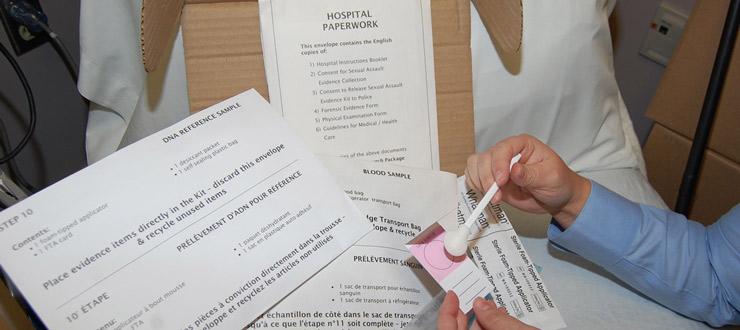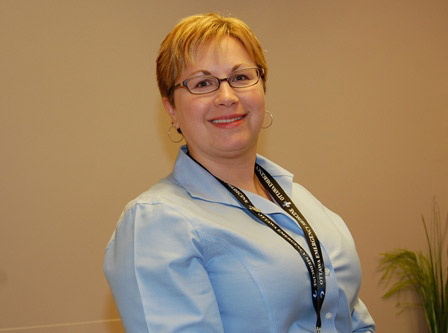
The sexual assault evidence kit contains paperwork and the supplies needed to collect samples of DNA, blood, urine and other forensic evidence needed.
The day after a local TV news program aired a report about The Ottawa Hospital’s Sexual Assault and Partner Abuse Care Program, a professional woman in her early 30s called the hospital’s media relations officer.
She had seen the report, in which the program’s Medical Director, Dr. Kari Sampsel, and her colleagues expressed their alarm about the rising numbers of sexual assault victims showing up in the Civic Campus Emergency Department (ED). The trend is particularly noticeable after large holiday gatherings where huge crowds, drugs and alcohol mix to form a dangerous cocktail.
“I felt I needed to come forward to share my story, so that I can let others know that it’s very important to go and get checked out at the hospital,” said Carla (not her real name) in another report by CTV News.
Carla’s story was different from the holiday gatherings situations, but all too typical. No stranger spiked her drink or jumped out of the bushes. She was just on a quiet date that took an unexpected and ugly turn at the end. In the middle of the night, she found herself alone in the ED, not knowing what would happen next.
“Survivors are now believed more often,” said Dr. Kari Sampsel. “They’re not belittled or shamed for having been victimized, so they feel more empowered to come forward and seek treatment.”
Thankfully, the Civic ED is home base to the specialized program that treats survivors of sexual assault and spousal abuse. Patients are treated and counselled by specially trained physicians, nurses or nurse practitioners in private examining rooms separate from the main ED. Carla had nothing but praise for the team that treated her, and took all the necessary steps to ensure her physical and emotional well-being and to collect the evidence required to eventually prosecute the alleged perpetrator.
Despite the steep rise in the number of cases being handled by the program, especially around major holidays, Dr. Sampsel noted, some of the increase may reflect a shift in societal attitudes about sexual assault and spousal violence.
“Survivors are now believed more often,” she said. “They’re not belittled or shamed for having been victimized, so they feel more empowered to come forward and seek treatment.”

Support patient care and research at
The Ottawa Hospital


 To reset, hold the Ctrl key, then press 0.
To reset, hold the Ctrl key, then press 0.
